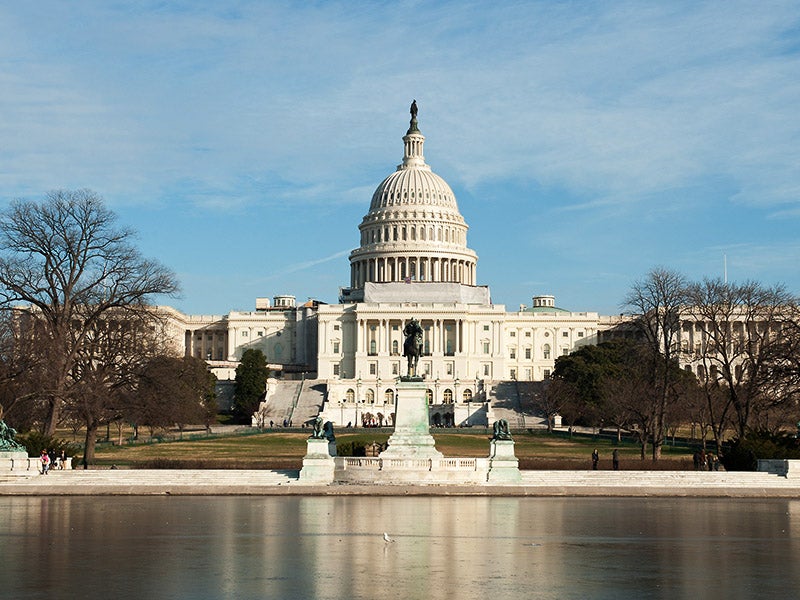Poison Pills in Spending Bills Threaten Our Air, Water and Wildlife
The terms of last week's budget agreement between the Obama administration and Congress were an achievement, but the fate of environmental "ideological riders" is yet to be determined.

This page was published 10 years ago. Find the latest on Earthjustice’s work.
Last week, the Obama administration and Congress announced a budget agreement with great fanfare. While the terms of the agreement were in many ways a great achievement for the White House, Congress still has to pass spending bills by December 11 to implement the agreement and avoid another government shutdown.
The big issue that was intentionally left out of the recent budget negotiations was the fate of “ideological riders.”
It’s an understatement to say that the fiscal year 2016 government spending process has been awash in anti-environmental riders. There are 12 spending bills, and the House and Senate have their own versions of each. This year, seven of those bills contain anti-environmental riders—more than one hundred in all! The grand prize winner for seeking to interfere with environmental and public health protections is the House Interior and Environment spending bill, which carries an outrageous 60 riders.
With the new budget agreement, it’s now certain that Congress will produce an omnibus spending measure, which will combine all 12 bills (or most of them) into one gargantuan package. The negotiations over which, if any, riders are included in the final package will happen in a proverbial smoke-filled room among the barest handful of Congressional and White House leaders.
One positive in this process is the strong “no ideological riders” message that the Obama administration and Democratic leaders in both the House and Senate delivered after the budget agreement was announced and have backed throughout the appropriations process this year.
Never has a “no ideological riders” position been more important, given what is buried in these spending bills.
There’s a rider that endangers the drinking water of one in three Americans by preventing the EPA and the Army Corps of Engineers from protecting headwater streams. Another rider seeks to prevent the Department of the Interior from protecting streams against destructive mountaintop removal coal mining.
Congressional doubters are catering to fellow doubters—or at least polluters—with several riders that target a range of climate change policies, including blocking the president’s Clean Power Plan. Not content to simply target climate pollution, they also seek to repeal the EPA’s recent clean air rule to reduce ozone pollution, or smog, as well as the agency’s 2013 rule to control hazardous air pollution from industrial power plants, which prevents 7,900 premature deaths each year.
Another rider would prevent the implementation of the U.S. Fish and Wildlife Service’s conservation plan for the Arctic National Wildlife Refuge. Two others would undermine the Bureau of Land Management’s new rules regulating fracking on public lands and force approvals of oil and gas lease sales in the Atlantic Ocean, respectively.
Then, of course, there’s the wildlife Congress would like to help drive to extinction by repealing or denying Endangered Species Act protections. This year’s crop of imperiled wildlife is larger than ever; it includes the gray wolf, the greater sage grouse, the northern long-eared bat, the lesser prairie chicken, the Sonoran desert tortoise, and Preble’s jumping mouse. And God forbid Congress should allow U.S. restrictions on the ivory trade to be toughened.
Last but not least, Congress feels it’s important to waste more energy, so there’s a rider to prevent the EPA from improving the energy efficiency of furnaces, ceiling fans and light bulbs.
All of this madness will be settled in that “smoke-filled room” between now and December 11 when the current short-term spending bill expires. It falls to all of us who care about our communities and the environment to make sure we raise our voices and tell our Congressional representatives to protect our public health and safeguard precious natural resources and wildlife.
This blog was first published by The Hill on November 11, 2015.
Established in 1989, Earthjustice's Policy & Legislation team works with champions in Congress to craft legislation that supports and extends our legal gains.